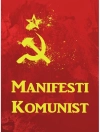White biotechnology is the use of enzymes and microorganisms in industrial production through applied biocatalysis. This allows for milder reaction conditions (p H and temperature) and the use of more environmentally-compatible catalysts and solvents. This, in turn, leads to processes which are shorter, generate less waste, making them both environmentally and economically more attractive than conventional routes.
This book describes the use of white biotechnology within the sustainable chemistry concept, covering waste minimization; the use of alternative solvents (supercritical fluids, pressurized gases, ionic liquids and micellar systems) and energies (microwaves and ultrasound); sustainable approaches for the production of fine and bulk chemicals (aromas, polymers, pharmaceuticals and enzymes); the use of renewable resources and agro-industrial residues; and biocatalysts recycling.
Covering industrial processes and new technologies, this book combines expertise from academia and industry. It is a valuable resource for researchers and industrialists working in biotechnology, green chemistry and sustainability.
Inhaltsverzeichnis
Principles on Green Chemistry and White Biotechnology;
Sustainability, Green Chemistry and White Biotechnology;
Biocatalysis in Organic Media;
Microwave Assisted Enzyme Catalysis: Practice and Perspective;
Lipase-catalyzed Reactions in Pressurized Fluids;
Biocatalysis in Ionic Liquids;
Biocatalysis in Micellar Systems;
Green Downstream Processing in Production of Enzymes;
Lipases in Enantioselective Syntheses: Evolution of the Technology and Recent Applications;
Redox Biotechnological Processes Applied to Fine Chemicals;
Production of Polymers by White Biotechnology;
Production of Aroma Compounds by White Biotechnology;
Biotransformation Using Plant Cell Culture Systems and Tissues;
Development of Processes for the Production of Bulk Chemicals by Fermentation at Industrial Scale – -An Integrated Approach;
Trends and Perspectives in Green Chemistry and White Biotechnology
Über den Autor
Bernardo D Ribeiro is a Professor at the Federal University of Rio de Janeiro, Brazil, where he researches clean technologies with a sustainable approach.












